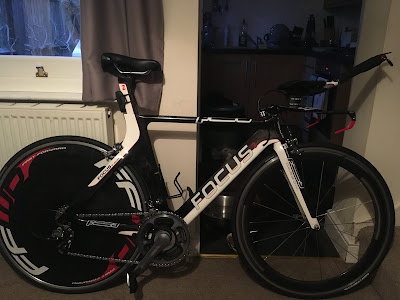Last of the summer whine
With the Great British summer drawing to its conclusion (I shall refrain from making the tired old joke), I wanted to reflect on my summer of writing.
After finishing university in early April (lol), and with only one exam to prepare for, I set myself the summer task of writing 'Idle Riot'. The inception of the story came two or three years ago and it's been in the back of my mind ever since. Initially I wrote a chapter but, as I wasn't certain of the story and the direction I wanted to take it in, I then put it on hold.
The protagonist of Idle Riot is a lazy, irritable, middle-aged man named Ian Dolent. As with pretty much everything I write, there's a fair amount of autobiographical detail and I like to think the pedant in me exists within Ian. There have been multiple occasions when I've found myself in a situation where I have thought, "I know exactly what Ian would do/think right now". I don't know whether other writers carry around their characters in their minds, and visualise them in everyday scenarios but it's something I enjoy and would wholeheartedly recommend.
So, armed with the best part of five months off University, I set about my task of writing Ian's story. The first item on my agenda was to complete a 'Plot Framework' a la JK Rowling (see below). When writing my first short story, 'Perspective', I found having a framework invaluable. One criticism of such a structured approach is that it stifles the writer's creativity. I disagree. Creativity is useless without application. (Consider the analogy of a car with creativity as power and application as downforce.)
 |
| Isn't it beautiful? |
The framework of a story also provides the writer with a pathway to follow. Deviations and tangents are encouraged but as long as they make their way back to the planned route, the story cannot get "lost". I am certain many would disagree with me on this but writing, like any other creative outlet, is a significantly personal endeavour and the writer has to find their own way of doing things.
Ideas come to me on a daily basis and, while I am grateful to receive/create them, having too many can be paralysing. With a framework outlined, the writer can tell their story the way they need to tell it and with brilliant creativity, without the burden of having to rein their storytelling urges in for fear of getting sidetracked or moving away from where they thought they wanted to go. It's a decision that can provide a wonderful clarity of mind, freeing the writer of plot obligations and allowing them to spread their creative wings.
Next, I created a character list. This varied from character to character. You're often advised to create flat (supporting) and round (important) characters and, while I did this to a certain degree, I prefer to create characters that are multi-faceted where possible. Of course, it's inadvisable for every character to be "round" and multi-faceted because the important characters would then get buried beneath all of the inessential detail the reader has been fed. Still, it's important to consider the story from each character's perspective and try to avoid using them as plot devices. That's what I try to do.
Once I had created the framework and character list, I began the actual writing. As I mentioned above I had already written a little so I salvaged what I could and began writing in earnest. My plan (I use the word "plan" in the loosest sense, it was more an intention) was to write everyday unless I didn't feel up to it. I hate forcing creativity, it seems so wrong but I also understand I have lazy tendencies so I would need to keep a check on that aspect of myself and not let myself get too pretentious (it's too late) or blame my creative angst (how I love thee).
Fast forward to the beginning of July and I had finished the first draft (woohoo!). Proud of my achievements but wary of the battles to come, I put the story to one side for a month and, as a Busman's holiday, wrote some other stuff which was lots of fun. In fact, one idea is seriously exciting.
At the start of August I decided enough time had passed and began editing. First I read through the document on my computer making changes as I went, mostly grammatical.
The second step was to print out the document, read through it and make physical notes with a red pen. The editing here was much more advanced: cutting passages of text, changing events, dialogue - all that good stuff.
Step three was to type up the edits and go through each change, considering whether it was the right thing to do.
Finally, the fourth step, was to read it aloud. Reading the story aloud was surprisingly tiring. It's only ~33,000 words (or 100 book pages).
After that, it was simply a case of making any final changes and that is where I am now.
Only those I live with have read/heard Idle Riot thus far so the jury is still out on the success of the quality of writing. Taking everything into account, I am incredibly proud of this summer's work. It has required dedication, consistency, and hundreds of hours of mental graft. It's been a good summer. :)




Comments
Post a Comment